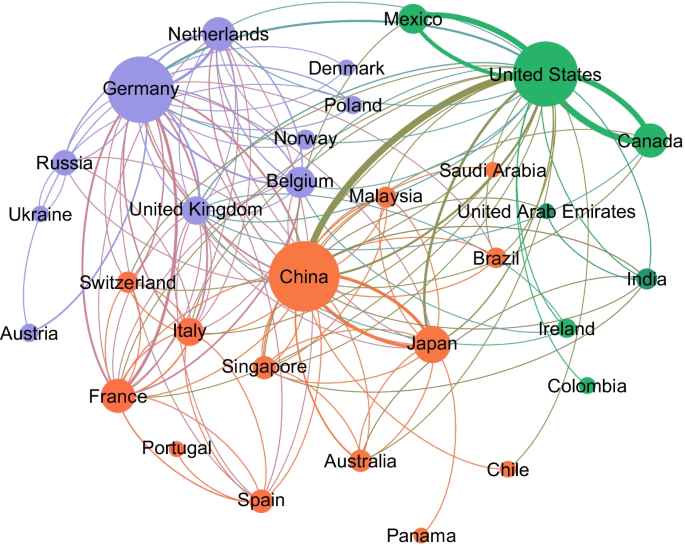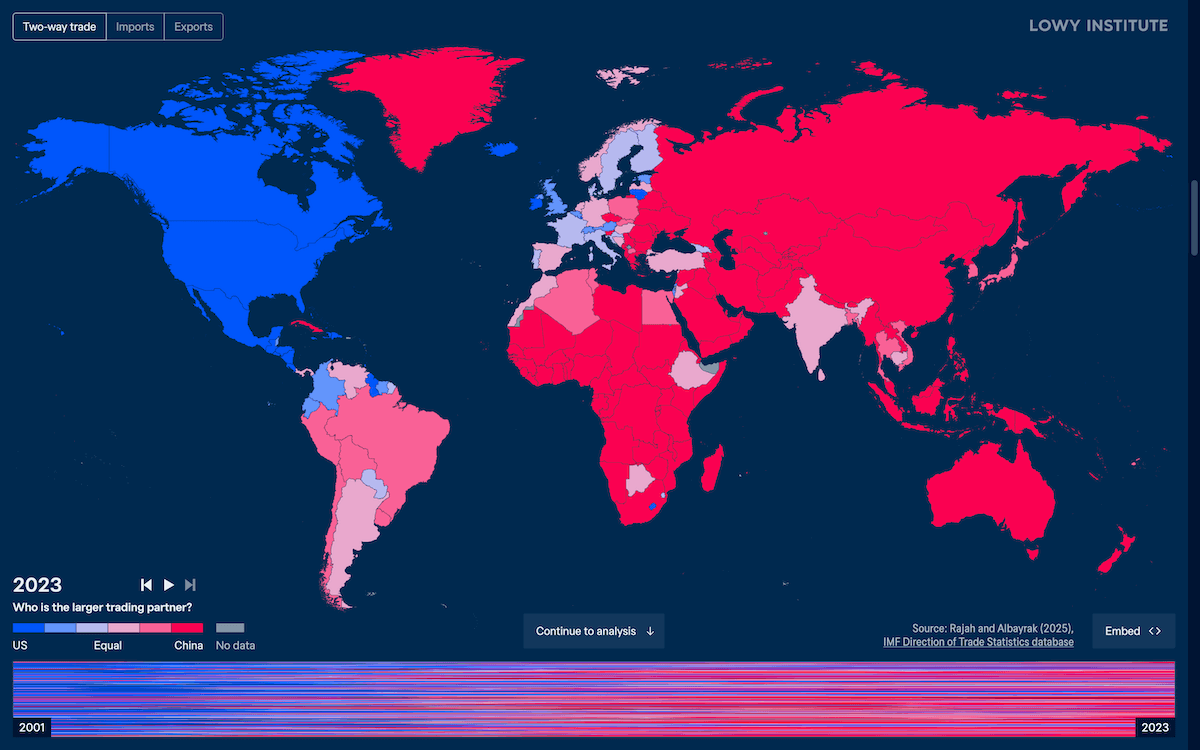The WTO Is Broken — Let’s Reform the UN and Rethink Global Trade from the Ground Up
The World Trade Organization (WTO)—once the cornerstone of multilateral trade—has all but collapsed. Fragmented by power politics, rendered irrelevant by regional trade blocs, and bypassed by unilateral tariff wars, the WTO no longer serves its foundational purpose.
There is little point trying to revive it in its current form. The 20th-century trade order it was built to manage no longer exists.
Instead, the world must look forward and architect a new, just, and inclusive global trade framework—starting with a reformed United Nations. And we now have a compelling proposal for how to do that.
🌐 A Reimagined United Nations: The Foundation of the Future
The blog post Imagining a New United Nations lays out a visionary formula for reorganizing the UN:
Total Voting Power = 40% GDP Share + 40% Population Share + 20% Equal Vote (1/195 per country)
This model would replace the outdated, veto-driven Security Council structure with a weighted, fair, and dynamic system—one that reflects today’s economic and demographic realities.
In such a reformed UN:
-
Every country would have a seat at the table.
-
Votes would reflect real-world contributions and needs.
-
There would be no unilateral blocks or vetoes.
This is the forum where a new global trade architecture should be debated and built—from the ground up.
📘 A Blueprint for a Just Trade Future
The book Rethinking Trade: A Blueprint for a Just and Thriving Global Economy offers a roadmap for how such a new trade system could be shaped:
-
Moving beyond exploitative bilateral deals and toward equitable multilateralism
-
Ensuring fair terms of trade for developing nations
-
Recognizing digital goods, data, and labor mobility as core trade categories
-
Integrating environmental, labor, and human rights standards into all agreements
Trade must not be just about tariffs and quotas. It must be about people, ecosystems, and shared prosperity.
🧳 Migrant Labor: The Trade Issue We Don’t Talk About
One of the most urgent and under-addressed aspects of global trade is migrant labor.
Trade today is not just in goods and capital—but in people.
Workers move across borders to fill labor gaps, send remittances home, and drive growth in both sending and receiving countries. Yet international trade regimes have almost entirely ignored this reality.
The Gulf countries—like UAE, Saudi Arabia, and Qatar—offer an instructive model. These nations don’t offer citizenship, but they do acknowledge the structural need for large-scale migrant labor and have built legal frameworks to manage it.
Likewise, countries like the United States, Germany, and Japan face labor shortages across key sectors: agriculture, construction, elder care, tech. Migrant workers already keep these economies running—but often under harsh, exploitative, or undocumented conditions.
It's time for migrant labor to be treated as a core pillar of global trade, with clear, humane, enforceable frameworks.
🤝 A Reformed UN: The Right Place for These Talks
Why should this conversation happen within a reformed UN?
-
Because only the UN can host truly global, multilateral, and inclusive negotiations
-
Because issues like climate-linked displacement, refugee labor, and remittance flows cut across borders, sectors, and continents
-
Because decisions made in the WTO—or in G7 boardrooms—have historically excluded the very people they affect the most
A restructured UN—with no veto powers, fair vote distribution, and legitimate representation for every country—can be the arena where we:
-
Redefine labor mobility as a regulated trade category
-
Create worker protection treaties as trade commitments
-
Ensure sending and receiving countries both benefit and share responsibility
-
Establish global frameworks for fair wages, portability of benefits, and legal status
🚀 Trade as a Tool for Shared Human Dignity
In the 21st century, trade should no longer be a race to the bottom. It should be a mechanism for:
-
Alleviating poverty
-
Closing inequality gaps
-
Enabling climate adaptation
-
Creating meaningful employment—both at home and abroad
If we reimagine trade with migrant workers, small producers, and frontline communities at the center—not just corporations and nation-states—we have a chance to build something radically better.
✨ Conclusion: From the Ruins of the WTO, a New Vision
The WTO may be broken beyond repair. But that gives us a once-in-a-century opportunity.
Let’s rebuild global trade inside a reimagined UN, grounded in fairness, democracy, and shared humanity.
Let’s start that conversation now—with bold ideas, a new formula for governance, and a clear north star:
A global economy that works for all.
Author: Paramendra Bhagat
Advocate for democratic multilateralism and author of “Rethinking Trade: A Blueprint for a Just and Thriving Global Economy”
#UNReform #GlobalTrade #MigrantLabor #WTOFailure #RethinkingTrade #GlobalGovernance
WTO अब अतीत की बात है — अब समय है UN में सुधार कर एक नई वैश्विक व्यापार व्यवस्था गढ़ने का
विश्व व्यापार संगठन (WTO)—जो कभी बहुपक्षीय व्यापार का आधार स्तंभ था—आज टूट चुका है। शक्ति की राजनीति, क्षेत्रीय व्यापार समझौतों और एकतरफा टैरिफ युद्धों ने इसे अप्रासंगिक बना दिया है।
अब इसे पुराने स्वरूप में पुनर्जीवित करने का कोई औचित्य नहीं है। जिस वैश्विक व्यापार प्रणाली के लिए इसे बनाया गया था, वह दुनिया अब रही ही नहीं।
अब समय आ गया है कि हम आगे की ओर देखें और एक नई, न्यायपूर्ण और समावेशी वैश्विक व्यापार व्यवस्था तैयार करें—जो कि एक पुनर्गठित संयुक्त राष्ट्र (UN) के मंच पर आकार ले।
और आज हमारे पास ऐसा करने का एक सटीक प्रस्ताव भी मौजूद है।
🌐 पुनःपरिकल्पित संयुक्त राष्ट्र: भविष्य की नींव
ब्लॉग पोस्ट Imagining a New United Nations में एक दूरदर्शी फॉर्मूला दिया गया है:
कुल मतदान शक्ति = 40% GDP हिस्सा + 40% जनसंख्या हिस्सा + 20% समान वोट (प्रत्येक देश को 1/195)
यह मॉडल पुराने, वीटो-आधारित सुरक्षा परिषद को एक संतुलित, निष्पक्ष और गतिशील प्रणाली से बदलने का आह्वान करता है।
ऐसे पुनर्गठित UN में:
-
हर देश की आवाज़ सुनी जाएगी
-
वोटिंग वास्तविक वैश्विक योगदान के आधार पर होगी
-
कोई भी देश अकेले सब कुछ रोक नहीं सकेगा
यही वह मंच है, जहां से हमें नई वैश्विक व्यापार प्रणाली की नींव रखनी चाहिए।
📘 एक न्यायपूर्ण व्यापार भविष्य के लिए ब्लूप्रिंट
पुस्तक Rethinking Trade: A Blueprint for a Just and Thriving Global Economy में यह दिखाया गया है कि यह नई व्यापार प्रणाली कैसी हो सकती है:
-
शोषणकारी द्विपक्षीय सौदों से हटकर न्यायपूर्ण बहुपक्षीय ढांचे की ओर बढ़ना
-
विकासशील देशों को व्यापार में समान अवसर देना
-
डिजिटल सामान, डेटा और श्रम को व्यापार की केंद्रीय श्रेणियों में शामिल करना
-
व्यापार समझौतों में पर्यावरण, श्रमिक अधिकार और मानवाधिकारों को अनिवार्य बनाना
अब व्यापार केवल टैरिफ और कोटा तक सीमित नहीं रह सकता। यह होना चाहिए मानवता, पर्यावरण और साझा समृद्धि के बारे में।
🧳 प्रवासी श्रमिक: व्यापार का वह पक्ष जिसे नजरअंदाज किया गया
आज का व्यापार केवल वस्तुओं और पूंजी का नहीं, बल्कि लोगों का भी है।
लाखों लोग बेहतर आजीविका के लिए सीमाएं पार करते हैं, पैसा अपने देश भेजते हैं और वैश्विक अर्थव्यवस्था को गति देते हैं। लेकिन अंतर्राष्ट्रीय व्यापार व्यवस्थाओं ने इस सच्चाई को लगभग पूरी तरह अनदेखा किया है।
खाड़ी देश—जैसे सऊदी अरब, यूएई, क़तर—इस मामले में एक सटीक उदाहरण हैं। ये देश नागरिकता नहीं देते, लेकिन यह सच्चाई स्वीकार करते हैं कि उन्हें प्रवासी श्रमिकों की जरूरत है, और उन्होंने इसके लिए कानूनी व्यवस्थाएं बनाई हैं।
इसी तरह अमेरिका, जर्मनी, जापान जैसे देशों को कृषि, निर्माण, वृद्ध देखभाल और तकनीक जैसे क्षेत्रों में श्रमिकों की भारी कमी है। आज ये देश प्रवासी श्रमिकों पर निर्भर हैं, लेकिन अधिकांश अनौपचारिक, असुरक्षित या अवैध स्थितियों में हैं।
अब समय आ गया है कि प्रवासी श्रमिकों को वैश्विक व्यापार में एक केंद्रीय विषय माना जाए, और उनके लिए स्पष्ट, मानवीय, और लागू करने योग्य ढांचे तैयार किए जाएं।
🤝 यह बातचीत एक पुनर्गठित UN में ही हो सकती है
यह चर्चा सिर्फ UN में क्यों हो?
-
क्योंकि केवल UN ही वास्तविक वैश्विक और समावेशी मंच प्रदान कर सकता है
-
क्योंकि जलवायु विस्थापन, शरणार्थी श्रमिक, और रेमिटेंस जैसी समस्याएं सीमाओं से परे हैं
-
क्योंकि WTO या G7 जैसे मंचों पर अक्सर वही देश निर्णय लेते हैं जिनका असर दूसरों पर होता है
एक ऐसा संयुक्त राष्ट्र जिसमें:
-
वीटो न हो
-
वोटिंग संतुलित हो
-
हर देश को वास्तविक प्रतिनिधित्व मिले
वहीं पर हम कर सकते हैं:
-
प्रवासी श्रम को एक नियोजित व्यापार श्रेणी के रूप में परिभाषित करना
-
श्रमिक सुरक्षा संधियाँ व्यापार समझौतों का हिस्सा बनाना
-
प्रेषण, वेतन, लाभ और कानूनी स्थिति पर वैश्विक मानक तय करना
-
प्रेषण व्यवस्था और सामाजिक सुरक्षा को सीमा-पार लागू करना
🚀 व्यापार: मानव गरिमा का माध्यम
21वीं सदी में व्यापार मुनाफे की दौड़ नहीं, बल्कि:
-
गरीबी उन्मूलन
-
वैश्विक असमानता को कम करने
-
जलवायु अनुकूलन
-
और गरिमामयी रोज़गार सृजन का माध्यम होना चाहिए।
अगर हम व्यापार को प्रवासी श्रमिकों, छोटे उत्पादकों और आम लोगों के दृष्टिकोण से देखेंगे, तो हम एक बेहतर, समावेशी और टिकाऊ प्रणाली बना सकते हैं।
✨ निष्कर्ष: WTO के टूटे ढांचे से उभरेगा एक नया विश्व
WTO शायद अब नहीं सुधरेगा।
लेकिन यह एक अद्वितीय अवसर है।
आइए हम एक पुनर्गठित संयुक्त राष्ट्र के मंच से
न्याय, लोकतंत्र और मानवता की नींव पर नई व्यापार व्यवस्था गढ़ें।
और उस वार्ता की शुरुआत हम आज करें—
साहसी सोच, नई वैश्विक शासन प्रणाली, और एक स्पष्ट लक्ष्य के साथ:
एक ऐसा वैश्विक व्यापार तंत्र, जो सबके लिए काम करे।
लेखक: परमेंद्र भगत
“Rethinking Trade: A Blueprint for a Just and Thriving Global Economy” के लेखक और वैश्विक न्यायपूर्ण शासन के पैरोकार
#UNReform #GlobalTrade #प्रवासी_श्रमिक #WTO_असफल #न्यायपूर्ण_व्यापार #वैश्विक_समृद्धि


No comments:
Post a Comment